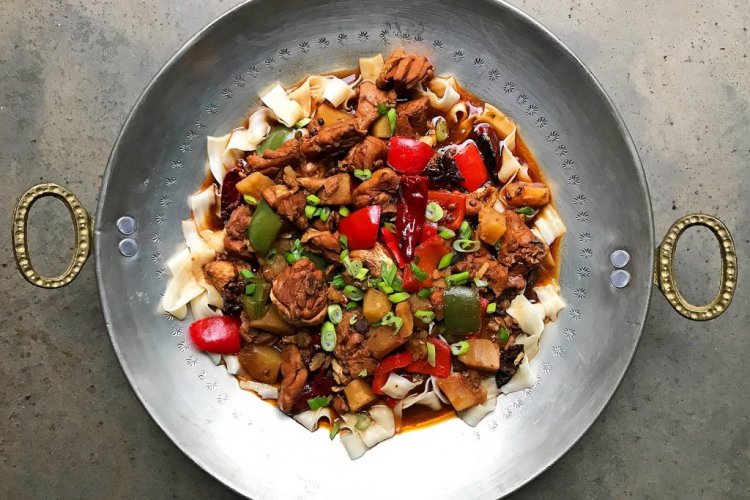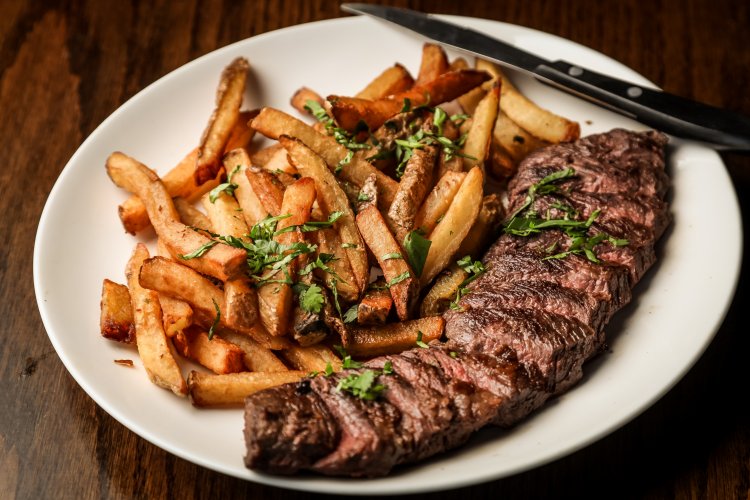A Taste of Home: Greece
“A Taste of Home” is a regular magazine column in which we ask the natives of a particular country to introduce us to their national cuisine.
According to Argo owner Vangelis Fakistra, “The four things that we can find in any traditional Greek dish are olive oil, bread, cheese and beans.” If Beijing’s avenues were aisles in a supermarket, would the shelves be reasonably well-stocked for the Greek restaurateur? Vangelis runs through his shopping list of essentials: “Olives and olive oil, yes. Greek cheese. Not so easy, but possible to find. Beans – some of them. The exclusively ‘Greek’ types of bread are harder to find.” Greek Embassy press officer Eleni Moutsaki, our host for the day, is also positive, telling us: “I cook at home, and I cook mostly Greek.”
Eleni starts us off with a lesson in nutritional economics. “Traditional Greek food is derived from necessity. People were going to the fields to work, so they needed combinations that were easy to transport yet highly nutritious.” Tiropitakia (cheese pie, RMB 35) and “Cretan tacos” (RMB 35) are just two dishes on Argo’s menu that would be ideal after a day working the land. The tacos (filled with tomatoes, cheese, olives and olive oil) are tasty, but as Vangelis notes, they’re not quite the same as they would be at home – paximadi, the dried bread traditionally used in Cretan tacos, is nonexistent in Beijing.
While some Greek dishes tell a simple tale of agrarian necessity, others reflect the country’s turbulent history. “I think it’s of Ottoman origin,” Eleni begins, introducing Argo’s moussak a (RMB 70), possibly the best in Beijing. “After being under Ottoman rule for four centuries, Greek culture has in many aspects absorbed a certain Ottoman influence.”
Vangelis reckons Greek food reflects an Arabian influence more so than the Ottoman legacy: “You find baklava in Syria.” Argo’s sweet, sticky baklava (RMB 28), made of phyllo pastry, nuts, honey and cinnamon, soon leads us into the realm of cultural symbolism. “Desserts are combined with the more festive aspects of Greek life,” Eleni tells us. “After weddings, the parents of the bride and groom will serve them honey and nuts, representing the hope that their life together will be sweet.”
The talk of festivities soon moves along to Greece’s aniseed-flavored national drink. “Before lunch and dinner, we’ll offer guests ouzo as an aperitif, served with mezzes,” Eleni explains. “Sometimes you’ll go out just to drink ouzo and eat mezzes – usually that will end up with you eating more than lunch!” Ever since a friend and I sunk a bottle of ouzo between us at a festival, I’ve felt a kind of bond with ouzo. Ouzo and I, we’re like the aftermath of a one-night stand. We don’t see each other much (nor should we), and when we do it’s a bit awkward, but it’s hard to forget that we had a lot of fun together.
Eleni places seafood at the top of her most missed list. “The problem is we have a lot of dishes based on smaller fish from the Aegean Sea, which you can’t find here at all.” Luckily for her, she was going back to Greece the very next day. “When I go home, the first thing I’ll eat will be fish. I’ve already ordered fish for Friday!” she says with a smile.
Vangelis also misses fish, along with the variety of cheese you’d find in Greece. For him, the challenges are simple. “The problem with Greece is we have many small producers, and you can’t export from that basis. We have many excellent wines and cheeses, but they can’t produce in the quantity you need to export. They say ‘Oh, China, how can we do that?’” Perhaps Mediterranean lifestyles can’t be exported. As Vangelis says, “The country is officially in crisis, but when I went home, the tavernas were full. We like a good life, and that will never change.”
Click here to see the October issue of the Beijinger in full.
Argo. Daily 11.30am-11pm. 59 Wudaoying Hutong (100 meters west of Vineyard Café), Dongcheng District (8403 9748) 东城区五道营胡同59号
Photos: Sui






